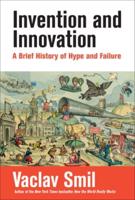Publisher's Synopsis
This is the story of how for more than a hundred years steam power played a vital role in the development of road transport. It all began with tentative attempts to build steam carriages by pioneers such as Cugnot in France and Trevithick in Britain, and in the early part of the nineteenth century there were significant attempts to develop steam carriages and omnibuses. That these attempts ultimately failed was largely due to opposition by road authorities and draconian legislation. Steam power did, however, find a real purpose in agriculture, where the traction engine was used for a variety of tasks from towing and working threshing machines, to ploughing. Once the value of the traction engine had been established, it soon found a use in many parts of the world for heavy haulage work and appeared in an exotic guise as the showman's engine. The latter was not only used to haul rides to fairgrounds but also powered a dynamo that could light up the fair at night. By the end of the nineteenth century, steam on the road took on a new life with the development of steam cars and trucks. For a time they vied the new internal combustion engine for supremacy on the road. The American Doble Company even developed a 100mph steam sports car. Ultimately steam lost the war, but steam vehicles survive and delight us still thanks to enthusiastic owners and restorers.










